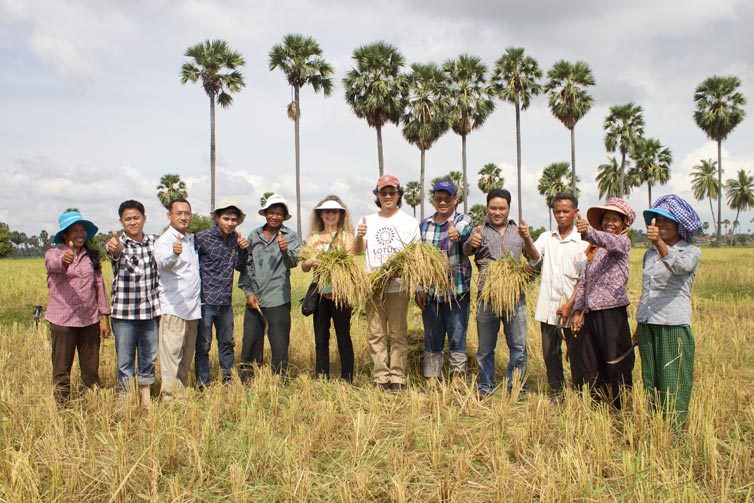Depending on where you live in the world, access to energy can be either a daily given or a real question mark. Even in the age of electricity, one in five people across the globe lacks access to it, while 3 billion people rely on wood, coal, charcoal, or animal waste for energy, substances that can be hazardous or even toxic when burned. The issue of inconsistent energy access has become so important to the point that the UN has included sustainable energy for all as one of its Sustainable Development Goals, issued in 2015.
Like many other countries in the world, India has struggled to provide all of its residents with reliable access to energy, with an MIT Technology Review report estimating that as many as 300 million Indians live without electricity. Furthermore, the ones who do have access to the grid often have to deal with another problem, blackouts, the worst of which came in 2012 when nearly 700 million Indians in 20 of India’s 28 states temporarily lost power.
As a result of this endemic issue, Simpa Networks was founded with the goal of providing reliable and environmentally safe energy solutions all throughout India. While their solar panel systems are unique on their own, it’s their lease-to-own model that has really helped them grow, making it easier for households to pay for and enjoy reliable access to energy. I reached out to CEO Piyush Mathur to discuss Simpa Networks’ operations, the transformational benefits energy access provides, and the challenges Simpa Networks still faces.
What was the original inspiration behind Simpa Networks?
Simpa was founded in 2011 by Paul, Jacob and Michael, who were passionate about addressing the problem of energy access which they had witnessed in Africa and parts of Asia. Even today there are more than 50 million households in India that are not connected to the grid, and several are living with a poor grid connection with only a few hours of electricity and very low voltage. Lack of electricity access is a big reason why people are unable to break the cycle of poverty, as they continue living in sub-standard facilities with low opportunities for education and longer working hours. They also face several respiratory and other health hazards by using harmful high emission substitutes such as kerosene lamps, and don’t have access to air circulation without fans, leading to diseases such as malaria.
Simpa was set up with the idea of introducing a solution that was simple, affordable, and accessible to everyone. With this motivation, a metering technology (Pay-Go) was developed to enable a lease-to-own model where the customers could pay towards owning the solar home systems by making small monthly payments over a period of time, rather than large, one-time payments that are unaffordable for them. We also wanted to ensure that these customers are well catered to and have a good after-sale experience like we would expect when we buy any utility product from the market. For this we set up a force of employees in the areas where we work who are available to take care of any technical difficulties that the customer might face and to collect the monthly installments from the customers, along with a toll free customer care number. Operating since 2013, we have reached more than 35,000 households and have a field force of over 400 employees. After starting our operations in the state of Uttar Pradesh, we have expanded to other parts of India since last September, with a presence in Odisha and Bihar now as well.
 In the Photo: A rural chemist operating after dark using Simpa Networks’ solar panels. Photo Credit: Simpa Networks.
In the Photo: A rural chemist operating after dark using Simpa Networks’ solar panels. Photo Credit: Simpa Networks.
What impact has Simpa Networks’ solar power systems had on Indian communities? Have you been able to quantify it?
Simpa has deployed 36,900 systems in 604 villages, impacting the lives of 184,500 individuals in India. Our systems, which have generated a total of over 1.8 GWh, have saved 2,542 metric tons of CO2 emissions, and created more than 5,000 rural employment opportunities in the form of Village Level Entrepreneurs and our sales & services force.
There are also several second order impacts of our initiative, which we have not been able to measure so far. We have however observed that the end users have a healthier environment at home with a reduction in respiratory diseases. They can light their homes at night allowing children to do schoolwork. They can cook in safer environments, improving the health of women and children who are otherwise exposed to harmful emissions from cooking with kerosene or charcoal. They can also keep their small shops open till late, increasing income levels.
 In the Photo: Children standing next to a fan powered by Simpa Networks. Photo Credit: Simpa Networks.
In the Photo: Children standing next to a fan powered by Simpa Networks. Photo Credit: Simpa Networks.
What kinds of challenges has Simpa Networks faced with its efforts to spread solar energy in India?
The biggest challenge for Simpa today is the lack of awareness about solar and clean energy among the people. They do not know that such a solution exists, and that it’s available at easy installments. A big hurdle for us is also the low quality of solar lamps easily available in the market for a cheap price, which are not durable and create doubts in the minds of potential users. We are also in a constant need for a skilled field force in the rural areas where we operate, to provide technical assistance to the customers and make sales. Such skilled employees are hard to find in these rural locations, which makes us spend large resources in training them.
 In the Photo: A family watching TV with energy provided by Simpa Networks’ solar energy systems. Photo Credit: Simpa Networks.
In the Photo: A family watching TV with energy provided by Simpa Networks’ solar energy systems. Photo Credit: Simpa Networks.
What do you think the the future will bring for Simpa Networks? Are there any plans to expand Simpa Networks to serve communities outside of India?
Simpa plans on expanding to 6 states across India in the next 3 years, of which 2 new states have already been expanded to in September 2017. Given the extent of the problem here, where 250 million people still do not have electricity access, we plan to concentrate on scaling up in India itself at the moment, after which we may think about expanding overseas as well.


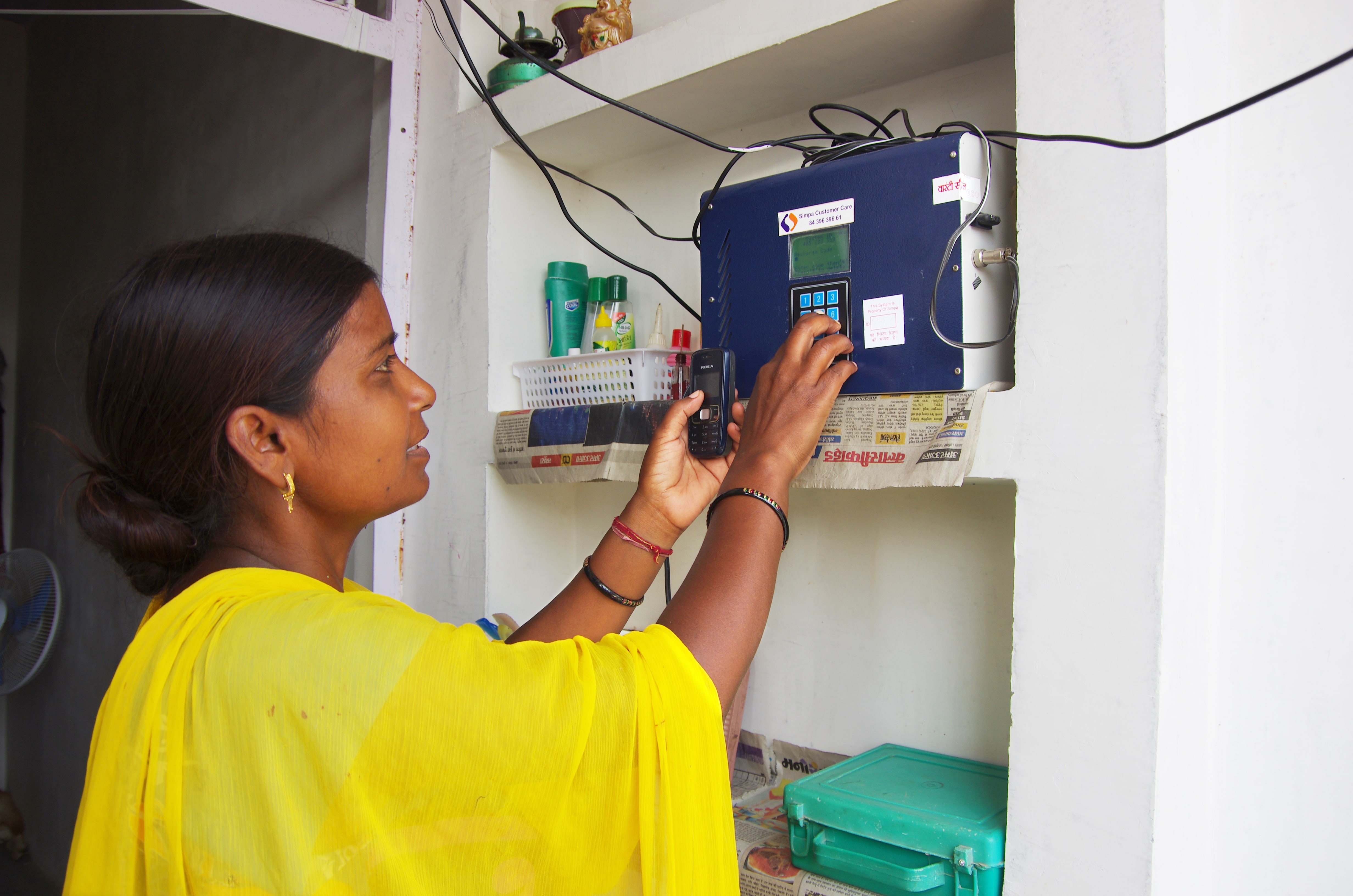
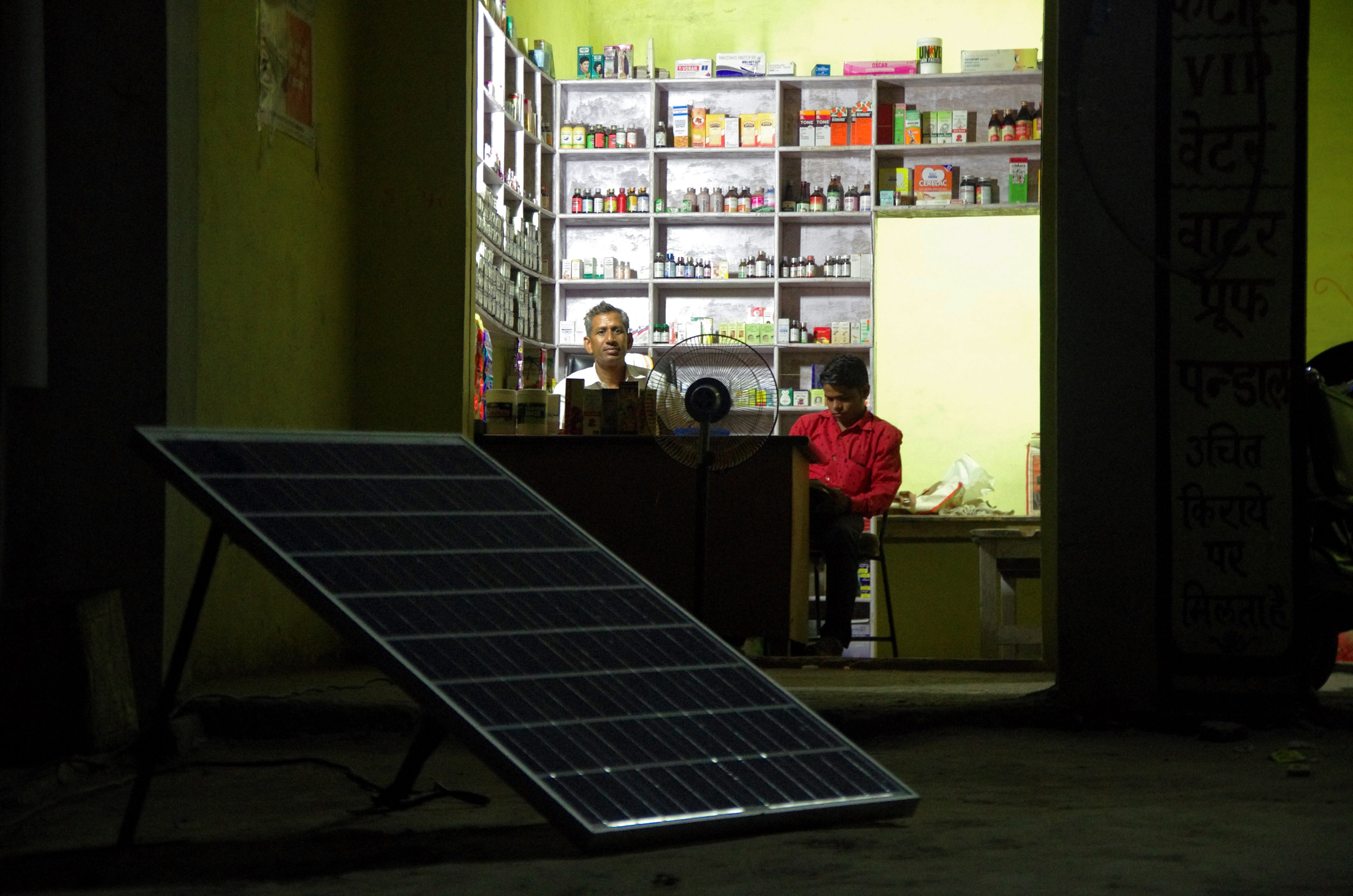 In the Photo: A rural chemist operating after dark using Simpa Networks’ solar panels. Photo Credit: Simpa Networks.
In the Photo: A rural chemist operating after dark using Simpa Networks’ solar panels. Photo Credit: Simpa Networks.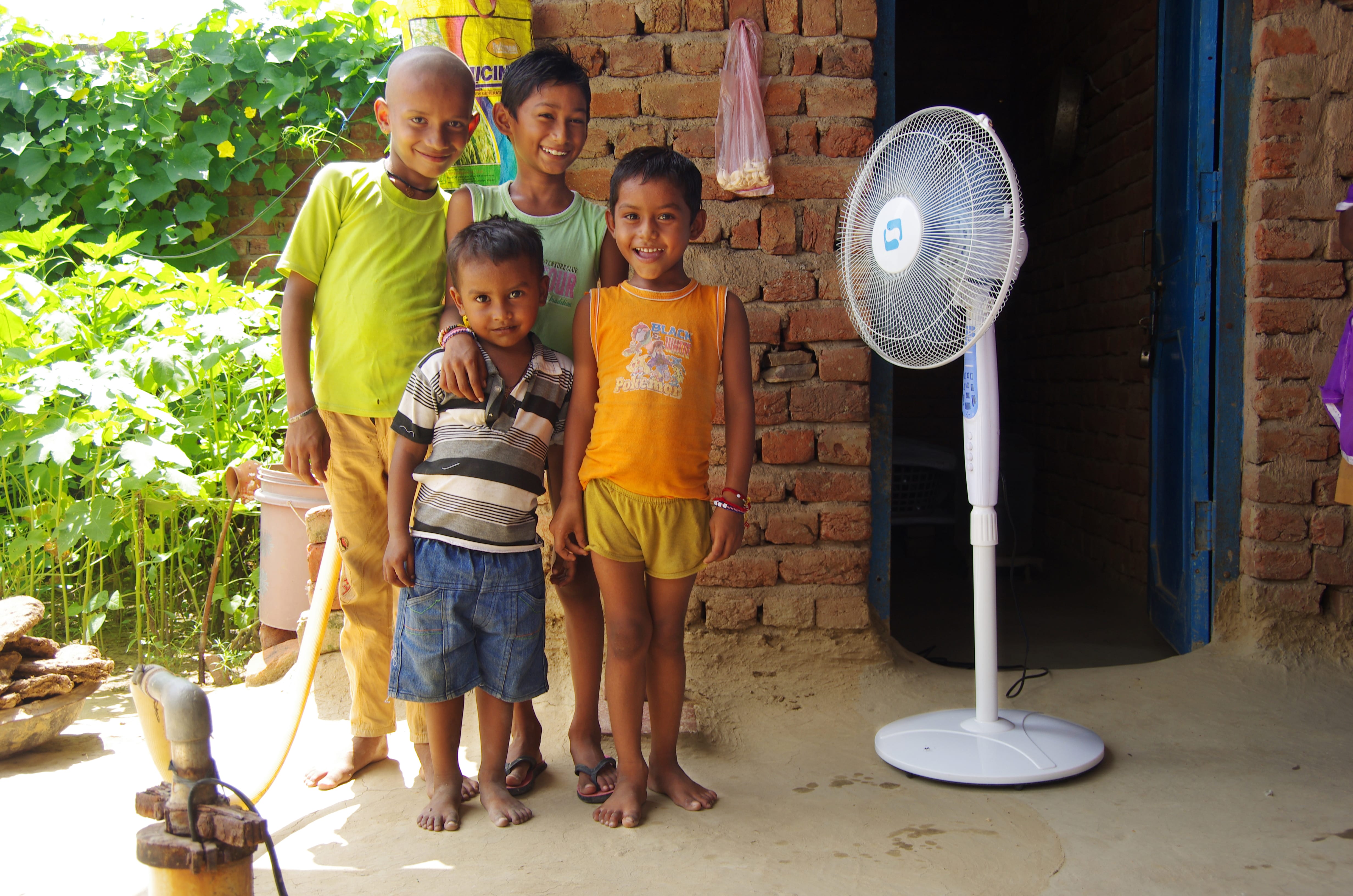 In the Photo: Children standing next to a fan powered by Simpa Networks. Photo Credit: Simpa Networks.
In the Photo: Children standing next to a fan powered by Simpa Networks. Photo Credit: Simpa Networks.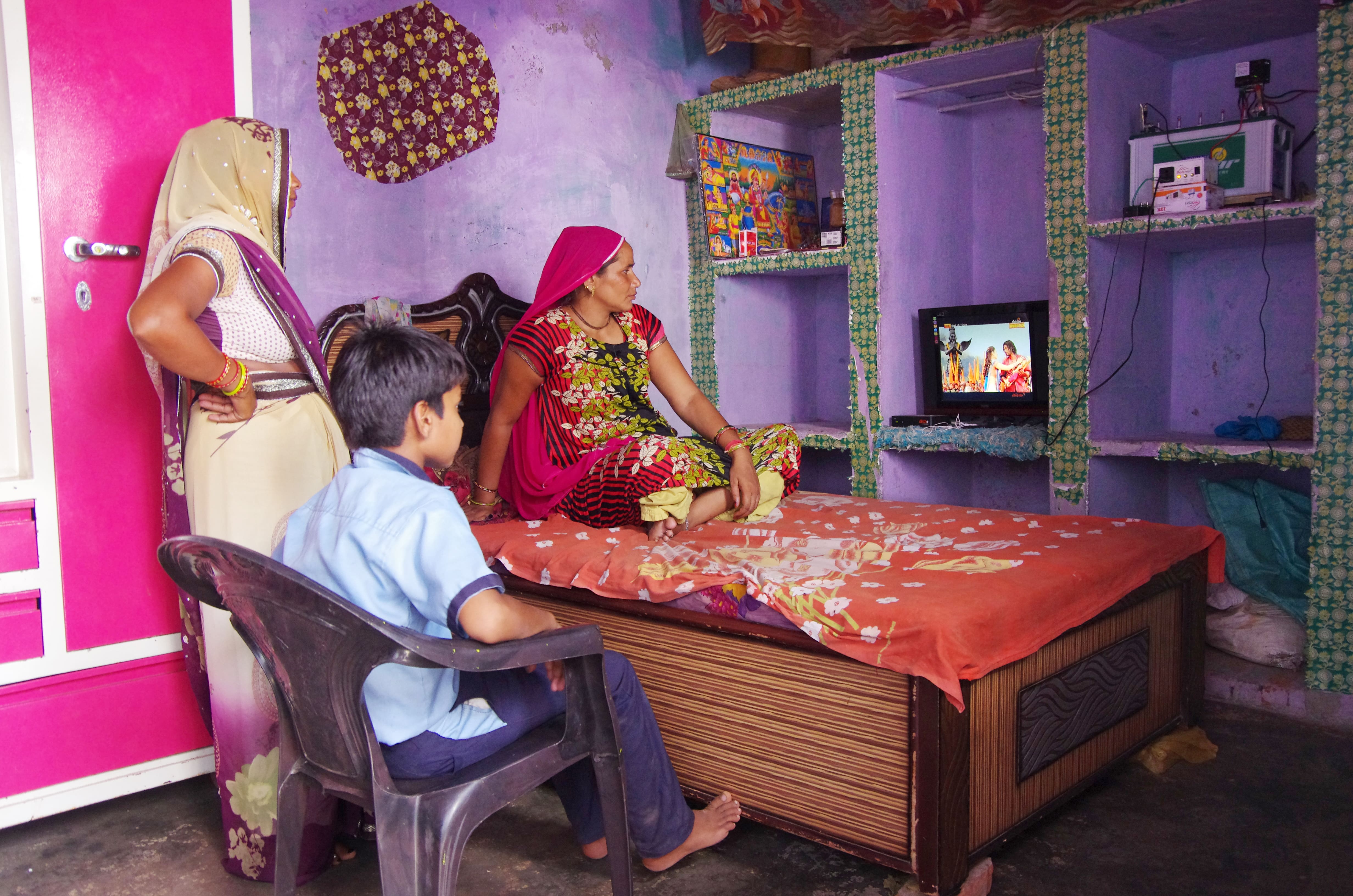 In the Photo: A family watching TV with energy provided by Simpa Networks’ solar energy systems. Photo Credit: Simpa Networks.
In the Photo: A family watching TV with energy provided by Simpa Networks’ solar energy systems. Photo Credit: Simpa Networks.


